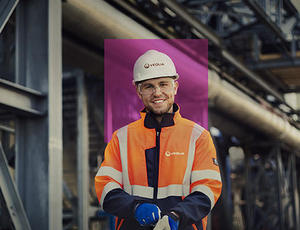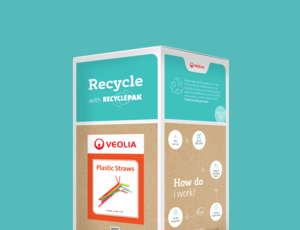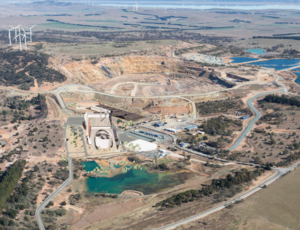Read a snapshot of some of the policy and regulatory updates relevant to the environment in the January to March 2023 quarter across Australia and New Zealand.
Only got 60 secs? Here’s a quick recap
- The federal government announced the creation of the Ministerial Advisory Group on the Circular Economy to look at how products are designed, manufactured and used across all sectors as Australia transitions to the circular economy.
- Mattresses, tyres and plastics in health were added to the Minister’s Priority List which names products and materials that require urgent product stewardship action.
- The Tasmanian parliament passed legislation committing to net zero emissions by 2030, the most ambitious target of any Australian state or territory.
NSW climate change policy
The NSW Environment Protection authority (EPA sought feedback on its draft Climate Change Policy and Action Plan. Part of the plan would require businesses to adopt their own climate change action mitigation and adaptation plans (CCMAPs). If introduced, the plan would also see the EPA develop a series of greenhouse gas emission reduction targets for the industries it regulates.
Veolia’s position
We strongly supported businesses adopting clearly articulated measures to respond to climate change. It is clear that everyone – including industries – must do more if we are to meet our ambitious but entirely appropriate emissions targets. Our submission also urged caution in inadvertently creating duplication in regulations and guidelines between the state and the federal governments.
Global methane pledge
The federal government announced Australia would join more than 100 other countries committed to collectively reduce global methane emissions. Under the Global Methane Pledge, signatories will work together to reduce global methane emissions across all sectors by at least 30% below 2020 levels by 2030. In joining the pledge, Australia is committing to in part take a range of domestic actions such as standards for reducing emissions in the energy and waste sectors.
Veolia’s position
It is well-established that landfills generate methane, a gas around 25 times more damaging to the environment than carbon dioxide. Acutely aware of this, Veolia constantly invests in initiatives and projects designed to divert waste away from landfill. Our proposed Woodlawn Advanced Energy Recovery Centre, for example, we are pursuing to recover waste that cannot be recycled and turn it into energy, thereby keeping it out of landfill. Meanwhile, at several of our landfill sites around Australia, Veolia engages in landfill gas capture, a process that reduces methane emissions and instead generates electricity.
COP27
On the back of the 27th annual United Nations gathering of world leaders to discuss climate change – COP27 – Minister Chris Bowen reaffirmed “Australia’s commitment to ambitious and necessary change,” pledging “to be a strong and constructive partner in leading the way” and to helping the world keep global warming as close as possible to 1.5 degrees Celsius. Australia also agreed to join a global loss and damage fund to support vulnerable countries respond to climate change.
Veolia’s position
Veolia is working to turn the tide of climate change through our We are Resourcers campaign, launched earlier this year. We have also embarked on a nationwide decarbonisation project of our Australian operation to reach ecological transformation. Under the transformative, $20-million project, rooftop solar panels and commercial battery stations will be installed at 40 of Veolia’s Australian facilities, generating enough green energy to power the equivalent of around 100 homes.
Plastic pollution
Following the high-profile collapse of a company dedicated to recycling soft plastics, Minister Tanya Plibersek joined Australia to the High Ambition Coalition to End Plastic Pollution, adding its name to a pledge to end plastic pollution around the world by 2040 under a new plastic pollution treaty. Relatedly, the Australian Competition and Consumer Commission issued an urgent determination allowing supermarkets to cooperate on solutions for soft plastics. The interim authorisation allows co-operation between the major supermarkets for a limited period and for the explicit purpose of exploring options for the storage, transport, processing, recycling and management of soft plastics to minimise the volume that may end up in landfill
Veolia’s position
We support the introduction of product stewardship schemes whereby manufacturers of products that use plastic would be required to take responsibility for the environmental impact created by their disposal. Towards that end, our RECYCLEPAK® solution is playing an important role in minimising environmental damage from plastic misuse. Ultimately, plastic is not the enemy. It’s how we make it, use it and what we do with it after use that needs changing for the better.
‘Survival Guide’: new IPCC climate report
In March, the Intergovernmental Panel on Climate Change released a new climate report that UN chief Antonio Guterres called a "survival guide for humanity". While governments around the world have agreed to act to avoid global temperature rise going above 1.5C, with the world having already warmed by 1.1C experts now say that we are likely to breach 1.5C in the 2030s. But there are reasons to be optimistic – the report’s authors point to falls in energy prices thanks to solar and wind and say changes driven by consumers (including diet, food waste and switching to low carbon transport) can drive significant emissions reductions.
Veolia’s position
As champions of ecological transformation the work we do is central to this global effort to decarbonise. Veolia is helping customers to accelerate their plans to implement food and garden organics collections while also exploring more projects in energy recovery from non-recyclable waste and biomass. Veolia is also expanding its renewable energy profile and installing solar to the roofs of its facilities to minimise its carbon footprint.





